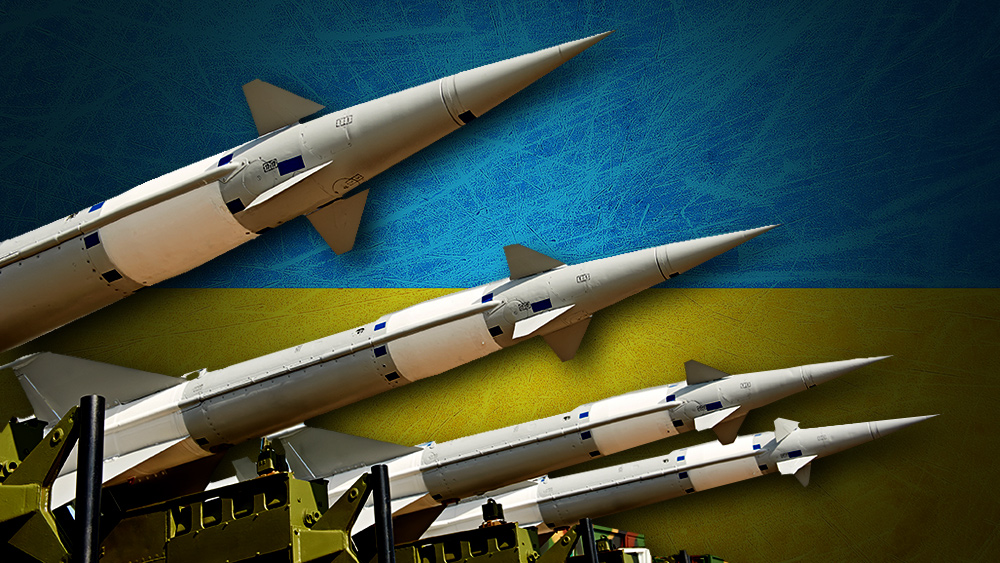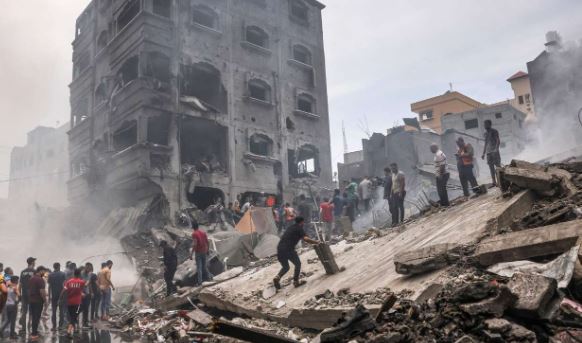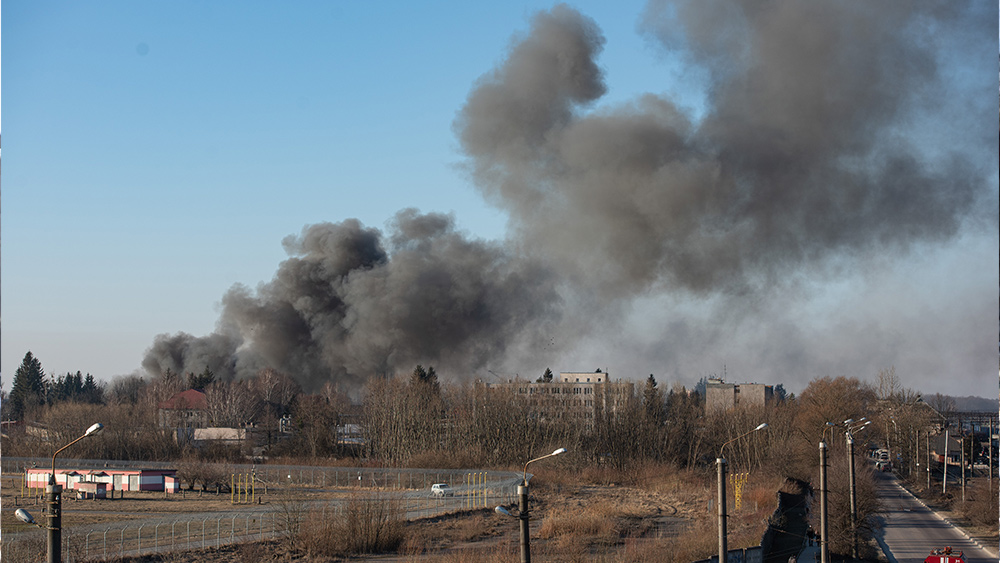Health Ranger Report: Blackstone Intelligence’s Jake Morphonios delves into the Israel-Palestine conflict
07/03/2025 / By Kevin Hughes

(Note: This article is based on a “Health Ranger Report” interview posted Jan. 8, 2024 on Brighteon.com.)
- The Israeli-Palestinian conflict follows a repetitive cycle: Israeli offensives in Gaza spark international outcry, but resolutions rarely lead to lasting change. Current violence has triggered global protests.
- Criticism of Israel is growing, even among Jewish communities, weakening the conflation of anti-Zionism with antisemitism and enabling more open debate.
- A small, financially motivated elite — not the public — shapes Middle East policy, with Zionism (distinct from Judaism) driving agendas that many Jews oppose.
- Arab states’ financial neutrality (e.g., Egypt, Jordan) undermines Palestinian support, while U.S. dollar decline and BRICS’ alternative currency threaten American influence in the region.
- Israel’s aggression toward Lebanon/Hezbollah risks regional war, potentially drawing in Iran, the U.S. and Russia. The interview urges ceasefire negotiations, independent research and critical thinking.
The Health Ranger Mike Adams sat down with renowned geopolitical analyst Jake Morphonios on the “Health Ranger Report” to unravel the complexities of the ongoing Middle East conflict. Their conversation offered a nuanced perspective on the historical, political and social dynamics at play.
Morphonios began by highlighting the cyclical nature of the Israeli-Palestinian conflict, emphasizing a repetitive pattern where Israel launches offensives in Gaza, leading to international outcry and temporary resolutions. The investigative journalist pointed out that while the international community often responds with condemnations and resolutions, these actions rarely result in meaningful change.
This time, however, the scale of the violence has sparked unprecedented public mobilization. Protests have erupted in major cities worldwide, including London and Austin, Texas. (Related: Thousands protest across Middle East in support of Palestinians amid ongoing Israel-Hamas conflict.)
One significant shift Morphonios observed is the diminishing power of the “antisemitism” label to silence criticism of Israeli actions. The chief investigator for Blackstone Intelligence Network attributed this to the growing number of Jewish individuals, particularly in the U.S., who are openly condemning Israel’s policies. This shift, he argued, has weakened the conflation of anti-Zionism with antisemitism, allowing for more open discussions about the conflict.
Zionism, the elites and the Arab world’s role
The conversation delved into the distinction between Zionism and Judaism, with Morphonios noting that many Jews worldwide oppose Zionism. The host of “The Blackstone Intelligence Report” podcast emphasized that the true power in shaping Middle East policy lies not with the general public but with a small, influential elite. This elite, driven by financial interests, often dictates government policies, making it difficult for substantive changes to occur.
Morphonios also highlighted the economic disparity between Israel and Palestine, suggesting that the lack of financial support for Palestinians from Arab nations is a significant obstacle. He criticized Arab states like Egypt and Jordan for accepting financial incentives from the U.S. to remain neutral in the conflict, which he believes undermines the Palestinian cause.
“The Arab world does have vast resources. And they are often maligned and criticized because they are not doing more financially to support the Palestinians,” Morphonios said. “And I think that is to the shame of the Arab states.”
The discussion took a sobering turn as Morphonios warned of the potential for escalation. He pointed out Israel’s aggressive stance toward Lebanon and the possibility of provoking Hezbollah, which could lead to a regional war.
He also underscored Iran’s influence over Hezbollah and the potential for Iran to become directly involved if Hezbollah is attacked. This raises the specter of a broader conflict involving the U.S. and Russia.
Geopolitical implications of U.S. dollar’s decline
Adams and Morphonios also discussed the geopolitical implications of the U.S. dollar’s decline as the world reserve currency. They agreed that America’s ability to project power in the Middle East is closely tied to the dollar’s dominance. With the BRICS nations including Saudi Arabia moving toward establishing an alternative currency, America’s influence in the region may diminish – potentially altering the dynamics of the conflict.
In conclusion, Morphonios called for a ceasefire and a return to peace negotiations, emphasizing the need for a just settlement that addresses the grievances of both Israelis and Palestinians. He advocated for a more balanced approach to foreign aid, suggesting that the U.S. should reconsider its financial support for Israel and instead focus on promoting peace and stability in the region.
The conversation serves as a powerful reminder of the importance of understanding the historical and political context of the Israeli-Palestinian conflict. It challenges listeners to think critically and independently, urging them to seek out the truth amidst the noise of propaganda and misinformation.
Follow WWIII.news for more similar stories.
Watch the full interview between Jake Morphonios and the Health Ranger Mike Adams below.
This video is from the Health Ranger Report channel on Brighteon.com.
More related stories:
Andrew Meyer: Israel-Palestine conflict will continue unless BOTH SIDES sit down and compromise.
Israel’s deadly strikes continue despite ceasefire deal, raising doubts about lasting peace.
Israel’s forever wars in the Middle East will pave the way for its demise.
Sources include:
Submit a correction >>
Tagged Under:
America, antisemitism, big government, BRICS, chaos, culture wars, Gaza, Health Ranger, Health Ranger Report, Hezbollah, Israel, Israel-Hamas war, Jake Morphonios, Lebanon, Middle East, Mike Adams, national security, Palestine, Saudi Arabia, terrorism, US, violence, World War III, zionism
This article may contain statements that reflect the opinion of the author
RECENT NEWS & ARTICLES
COPYRIGHT © 2019 Dangerous.News
All content posted on this site is protected under Free Speech. Dangerous.News is not responsible for content written by contributing authors. The information on this site is provided for educational and entertainment purposes only. It is not intended as a substitute for professional advice of any kind. Dangerous.News assumes no responsibility for the use or misuse of this material. All trademarks, registered trademarks and service marks mentioned on this site are the property of their respective owners.




















